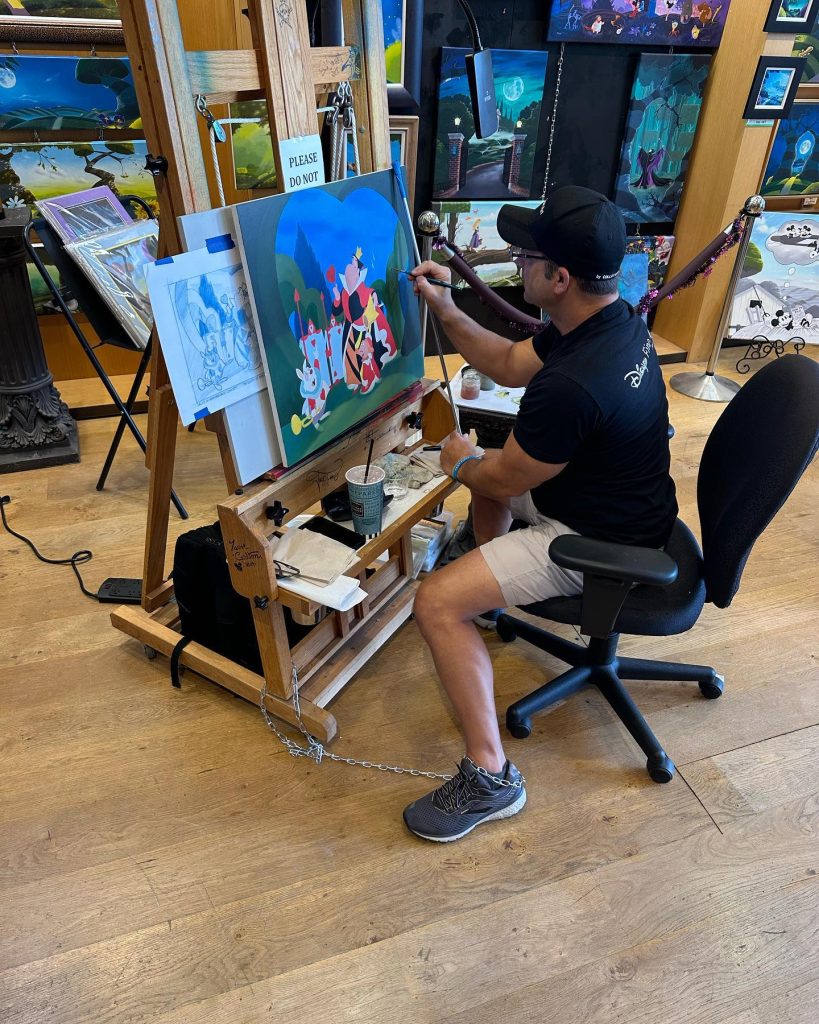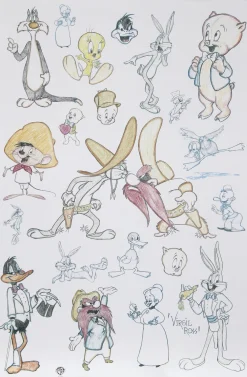Virgil Ross (August 8, 1907 – May 15, 1996) was an American artist, cartoonist, and animator best known for his work on the Warner Bros. animated shorts Looney Tunes. His introduction to cartooning was in high-school, where he took a class in that art form. Early work was done for Charles B Mintz (later at Screen Gems), Ub Iwerks studio, and then on to Walter Lantz, where he began animation work. In 1935, Virgil Ross moved on to work for Leon Schlesinger at Warner Bros., where he stayed about 30 years, first under Tex Avery’s supervision, until 1942, then for Bob Clampett and finally with Friz Freleng. He remained at Warner Bros. until 1964. From there he went to work for other Animation Studios such as Filmation where he worked on the early 1970’s Star Trek: The Animated Series, Hanna Barbera, DePatie Freleng (where he followed Friz Freleng, the director to whose unit Ross worked for twenty years) and Marvel Comics. In 1979 Virgil Ross animated Woody Woodpecker for a special scene at the 51st Academy Awards.
Virgil Ross created many cartoon characters, but he is most closely associated with Bugs Bunny, but also did a great deal of work involving other Merrie Melodies and Looney Tunes cartoon characters such as Daffy Duck, Yosemite Sam, Tweety and many others, including Road Runner and Wile E. Coyote. When handling long-eared characters such as Bugs or Wile E., Ross occasionally tilted or waved an ear in otherwise-static scenes. As the animator for “A Wild Hare”, generally regarded as the first appearance of Bugs Bunny, Ross had a first person view of the creation of the character. In a magazine interview, Ross Virgil recalls how the character of Bugs Bunny came to be. He says in the interview, “We received orders from the story department that they needed a drawing of a bunny. We all did drawings and tacked them on the wall, and the story men voted on them. We had one writer named Bugs Hardaway and for some reason, this one drawing became known as Bugs’ Bunny. Leon Schlesinger liked the sound of the name and told them to keep it, and that’s how Bugs Bunny got his name. Years later, before he died, Hardaway tried to get some credit for making the character, which he probably deserved. But Warner Bros owned the rights to everything we created.
Virgil Ross received the highest awards available in his profession: Motion Picture Screen Cartoonists Golden Award (1984) and the Winsor McCay Award (1988). Three of the cartoons he had animated won Oscars: Tweety Pie (1947), Birds Anonymous (1957), and Knighty Knight Bugs (1958). He passed away in May of 1996 after suffering a stroke earlier that year. Ross worked as he advanced in years, though he spent much of his later public life attending gallery and store openings dedicated to his and other’s work in the golden age of animation. In the twilight of his life his work achieved the true arts status denied his craft as animation slipped past its golden age.
Virgil Ross


